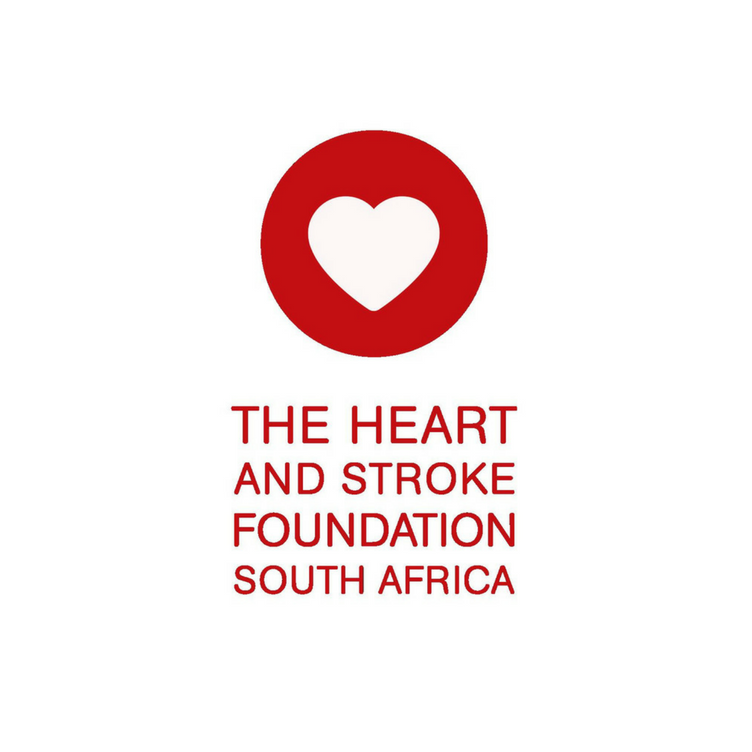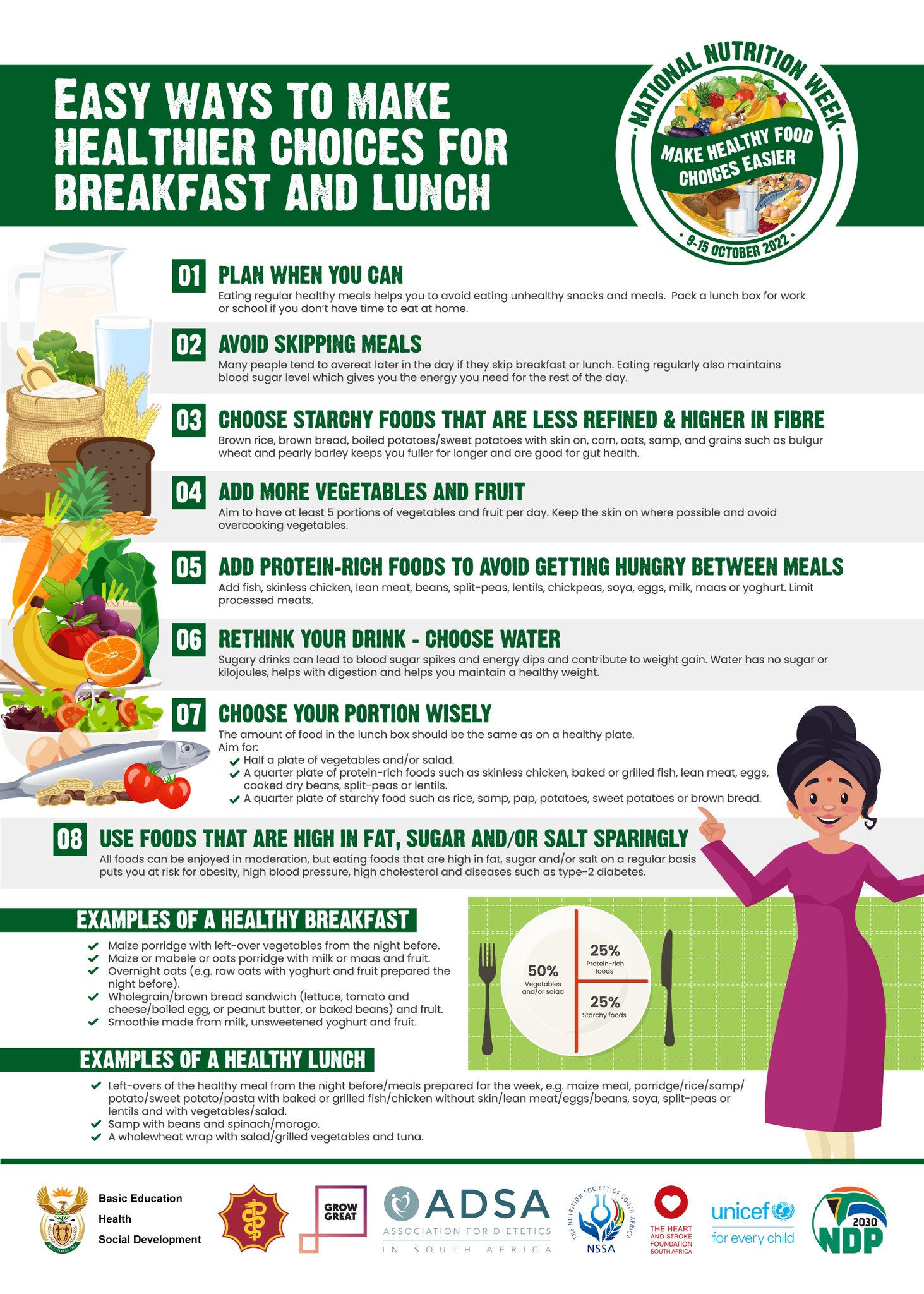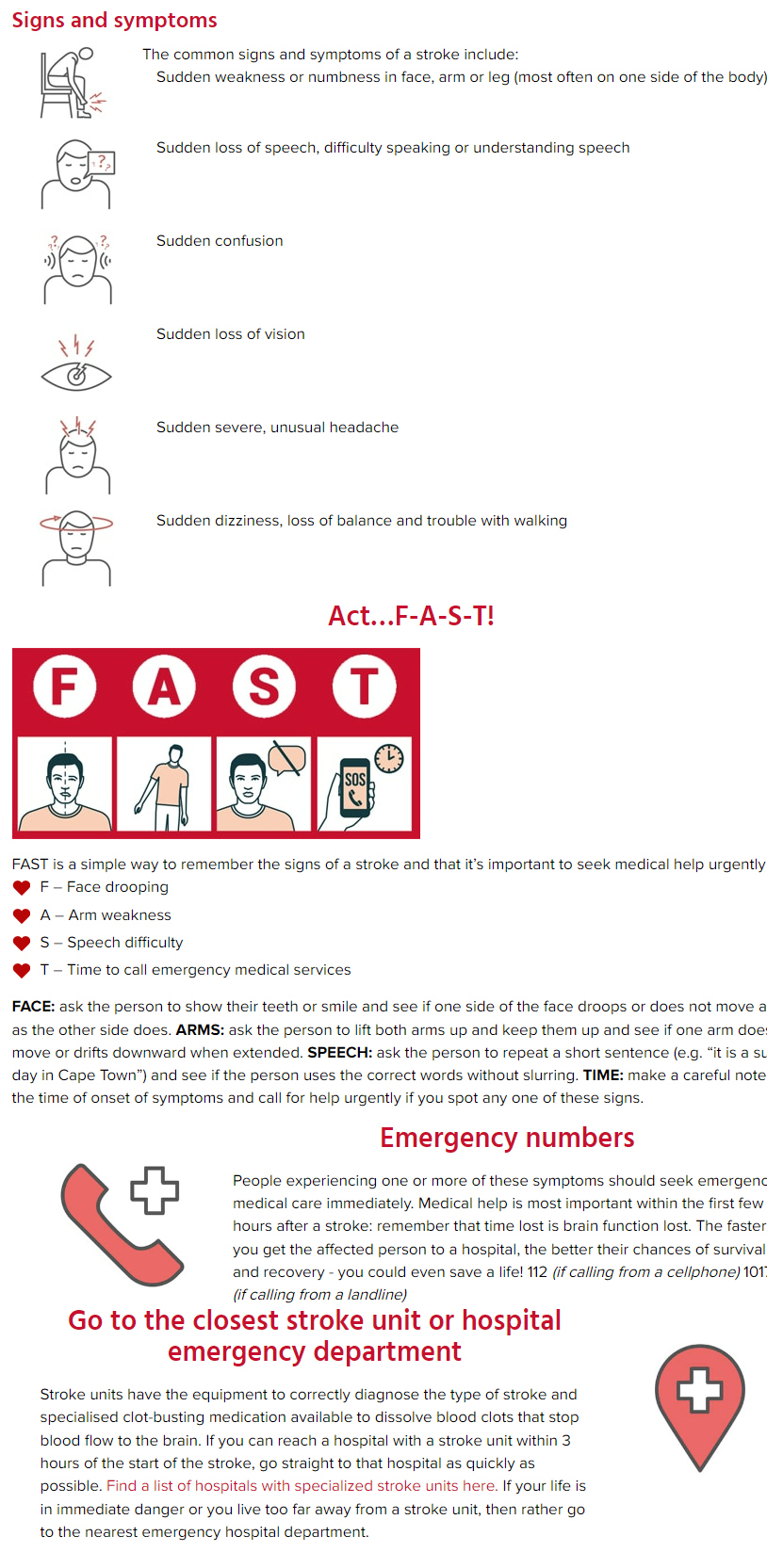Health
OFM Family Focus: World Stroke Week with the Heart and Stroke Foundation of SA─── 08:31 Mon, 24 Oct 2022

World Stroke Week aims to offer citizens globally an opportunity to help raise awareness about the symptoms of a stroke and the importance of taking treatment for recovery. It culminates on World Stroke Day the 29th of October 2022.
World Stroke Week aims to offer citizens globally an opportunity to help raise awareness about the symptoms of a stroke and the importance of taking treatment for recovery. It culminates on World Stroke Day the 29th of October 2022.
In the first interview, Mid-Morning Magic’s Yolanda Maartens is joined by Professor Pamela Naidoo, the CEO of the Heart & Stroke Foundation. Prof Naidoo explains exactly what a stroke is and what one should do in the case of a stroke.
In the second interview, Yolanda is joined by Prudence Cele, Health Promotions Officer, to talk about the causes of a stroke as well as the risk factors of a stroke.
In the third interview, Yolanda Maartens is joined again by Professor Pamela Naidoo, the CEO of the Heart & Stroke Foundation to talk about the symptoms of a stroke.
In the fourth interview, Mid-MorningMagic's Yolanda Maartens is joined by Dana Govender, Health Promotions Office from the The Heart and Stroke Foundation South Africa.
In the last interview, Yolanda is joined by Kinza Hussain is our RegisteredDietitian.

The Heart and Stroke Foundation South Africa (HSFSA) plays a leading role in the fight against preventable heart disease and stroke, with the aim of seeing fewer people in South Africa suffer premature deaths and disabilities. The HSFSA, established in 1980 is a non-governmental, non-profit organization which relies on external funding to sustain the work it carries out.

A stroke can be best understood as a “brain attack.” It occurs when the blood supply to the brain is disrupted which results in oxygen starvation, brain damage and loss of function. In most cases, a clot in an artery supplying blood to the brain is what causes it.
Strokes can also be caused by haemorrhage when a burst vessel causes blood to leak into the brain. Permanent damage, including partial paralysis and impairment in speech, comprehension and memory can be expected following a stroke. The type and severity of disability is dependent on the part of the brain affected as well as the length of time the blood supply has been stopped. The incidence of stroke increases greatly with age, however over 60% of strokes happen to people under the age of 70 years and 16% happen to those under the age of 50 years.
The focus of the 2022 campaign is on the importance of getting the person suspected of having a stroke urgent medical intervention in the quickest time possible. Consequently, the theme is: “Minutes Can Save Lives” based on the fact that the longer it takes for the person suffering a stroke to get medical attention, the more brain cells die.

The warning signs of a stroke are sudden. The knowledge of how to recognise these signs is an important first step in help. An efficient way of identifying a stroke is to apply the acronym F.A.S.T. to the individual suspected of experiencing a stroke. F stands for Face where the individual is asked to smile and the assessor identifies whether one side of the face of the individual is drooping. A stands for Arms where the individual is asked to raise both their arms and the assessor identifies whether one arm is leaning lower than the other. S stands for Speech where the individual is asked to say something and the assessor identifies whether the speech is slurry. T stands for Time and this is when the assessor notes the time and calls for immediate help should any of the mentioned signs be present in the individual being assessed. Identifying a stroke in time can save a life and potentially prevent permanent brain damage from happening.
DISCLAIMER: This content is not intended to be a substitute for professional medical advice, diagnosis or treatment. Always seek the advice of your physician or other qualified health provider with any questions you may have regarding a medical condition.














